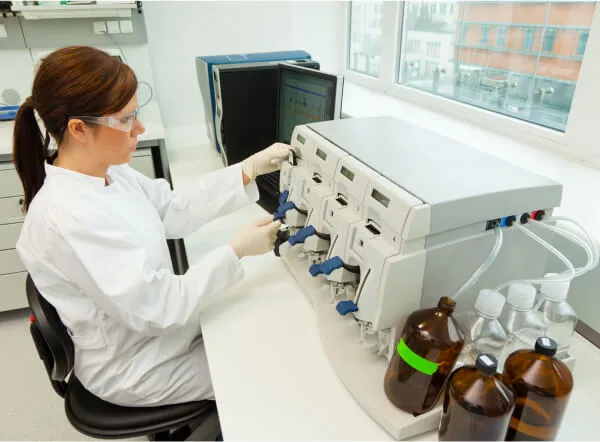Reproductive Biology

Reproductive biology is a field of study that looks at the growth and medical issues associated with the different stages of reproductive development. Find out more about the study of reproductive biology here, including how it can lead to a career as a medical doctor or scientist.
<h2 id="section---IsReproductiveBiologyForMe">Is Reproductive Biology for Me?</h2>
<h3 id="section---CareerOverview">Career Overview</h3>
<p>As a reproductive <a href="https://learn.org/articles/Biologist_Career_Definition_Job_Outlook_and_Education_Requirements.html">biologist</a>, you'll conduct clinical research and lab work and learn how to strengthen the processes that allow the body to function and fight disease. For example, your work may lead to advancements in livestock breeding and world food production, fetal monitoring, in vitro fertilization practices or the development of contraceptives. A Doctor of Philosophy (Ph.D.) in Reproductive Biology or a related area is typically required to work in the field; you'll need a <a href="https://learn.org/articles/Medical_Doctor_Degree_Program_FAQs.html">Medical Doctor (M.D.)</a> degree if you're considering opening or working in a practice. As a qualified graduate of a formal education program, you may put your analytical and problem-solving skills to work in the healthcare or private industries; opportunities in government agencies, hospitals and universities might also be available.
</p>
<h3 id="section---EmploymentAndSalaryInformation">Employment and Salary Information</h3>
<p>According to the U.S. Bureau of Labor Statistics (BLS) in May 2013, biological scientists (such as biochemists and biophysicists) earned average salaries of $91,640, and <a href="https://learn.org/articles/Medical_Scientist_Career_and_Salary_FAQs.html">medical scientists</a> earned average salaries of $90,230. As of May 2013, <a href="https://learn.org/articles/OBGYN_Job_Duties_Employment_Outlook_and_Educational_Requirements.html">obstetricians and gynecologists (OBGYNs)</a> made an average of $212,570 a year.
</p>
<p>The BLS also reported that biological scientists, such as biochemists and biophysicists, could expect a 19% growth in employment nationwide from 2012-2022, with a 13% growth in jobs projected for medical scientists during the same period. Although the BLS does not maintain employment statistics specific to obstetricians and gynecologists, it did report that opportunities for physicians and surgeons in general were expected to increase by 18% nationwide through 2022 (<i>www.bls.gov</i>). The national average employment growth for all occupations during this time was 11%.
</p>
<h2 id="section---HowCanIBecomeAReproductiveBiologist">How Can I Become a Reproductive Biologist?</h2>
<h3 id="section---HighSchoolAndUndergraduatePreparation">High School and Undergraduate Preparation</h3>
<p>In high school, it can help to take as many courses in the life sciences as possible. As a college biology major, you could also study cell and developmental biology and ecology, <a href="https://learn.org/articles/Human_Genetics_Courses_and_Schools_Frequently_Asked_Questions.html">genetics</a>, molecular biology and disease.
</p>
<h3 id="section---GraduatePrograms">Graduate Programs</h3>
<p>Many professionals in the area of reproductive biology hold Master of Health Sciences (MHS), Master of Science (M.S.), M.D. or Ph.D. degrees. In general, a master's degree program takes two years to complete and allows for specialized coursework and research in your area of interest. As a Ph.D. candidate, you may also study <a href="https://learn.org/articles/Molecular_Biology_Degree_and_Certificate_Programs_FAQs.html">molecular biology</a> and endocrinology, reproductive diseases and physiology, <a href="https://learn.org/articles/What_is_Bioinformatics.html">bioinformatics</a> and fertility regulation. An M.D. program requires a 4-year commitment, during which you'll have the chance to concentrate on reproductive processes.
</p>
<h3 id="section---CertificationAndLicensing">Certification and Licensing</h3>
<p>After receiving your <a href="https://learn.org/articles/Medical_Doctor_Career_Profile_Employment_Outlook_and_Educational_Requirements.html">M.D.</a>, you'll complete a 2- to 6-year residency and take the United States Medical Licensing Examination (USMLE). OBGYN certification, available through the American Board of Medical Specialties (ABMS), requires four additional years of training and two years of practice. The ABMS also offers sub-specialty certification and training in reproductive endocrinology and infertility for OBGYNs who are interested in reproductive biology. As an aspiring medical or biological scientist within the field of reproductive biology, post-graduate research and membership in a professional organization, such as the Society for the Study of Reproduction (SSR), may help your employment prospects.</p>


.svg)